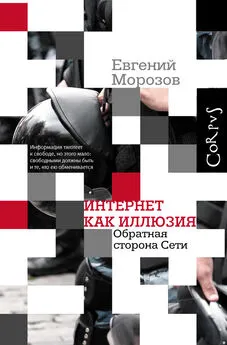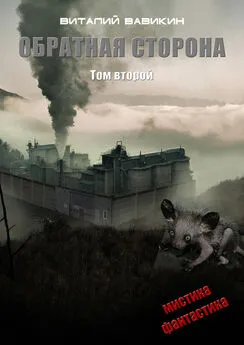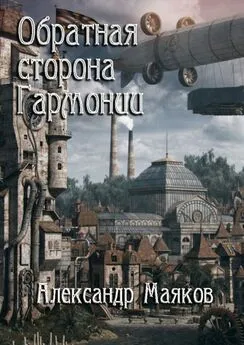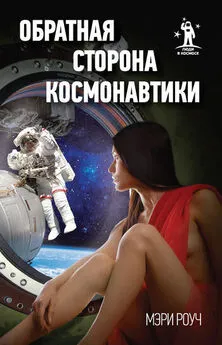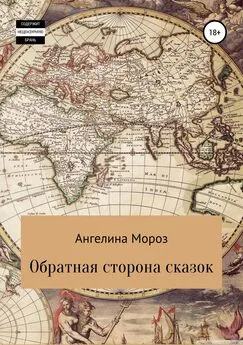Евгений Морозов - Интернет как иллюзия. Обратная сторона сети
- Название:Интернет как иллюзия. Обратная сторона сети
- Автор:
- Жанр:
- Издательство:Array Литагент «Corpus»
- Год:2014
- Город:Москва
- ISBN:978-5-17-084792-1
- Рейтинг:
- Избранное:Добавить в избранное
-
Отзывы:
-
Ваша оценка:
Евгений Морозов - Интернет как иллюзия. Обратная сторона сети краткое содержание
Интернет как иллюзия. Обратная сторона сети - читать онлайн бесплатно полную версию (весь текст целиком)
Интервал:
Закладка:
Los Angeles Times, January 31, 2010.
Goble, Paul Circassians Using Internet to End Soviet-Imposed Divi-sions in Advance of 2010 Census // Georgiandaily.com, January 8, 2010. georgiandaily.com/index.php?option=com_content&task= view&id=16365&Itemid=134.
Goble, Paul Russian Nationalists Now Mapping Location of Immi-grants in Major Cities // Window on Eurasia, June 5, 2008. windo-woneurasia.blogspot.com/2008/06/window-on-eurasia-russian-nationalists.html.
Goble, Paul Will the Internet Integrate the Russian Federation – or Tear It Apart? // Moscow Times, April 16, 2009.
Goggin, G. SMS Riot: Transmitting Race on a Sydney Beach, Decem-ber 2005 // M/C Journal 9, no. 2206 (2008): 28.
Google Admits “Mistake” of Wrong Depiction of Arunachal // The Times of India, August 8, 2009.
GuillÉn, M. F. Is Globalization Civilizing, Destructive or Feeble? A Critique of Five Key Debates in the Social Science Literature // An-nual Review of Sociology 27 (2001): 235–260.
Hancocks, Paula Facebook Gets Caught in Golan Heights Dis-pute // CNN.com, September 21, 2009. edition.cnn.com/2009/ TECH/09/21/israel.syria.facebook/index.html.
Hanson, Elizabeth C. The Information Revolution and World Politics . Lanham, MD: Rowman & Littlefield, 2008.
Harley, Jonathan Race Riots Erupt in Sydney // The 7:30 Report.
Australian Broadcasting Corporation, December 12, 2005. Herrera, G. L. Technology and International Systems // Millennium:
Journal of International Studies 32, no. 3 (2003): 559.
Herold, D. K. Development of a Civic Society Online? Internet Vigi-lantism and State Control in Chinese Cyberspace // Asian Journal of Global Studies 2, no. 1 (2008): 26–37.
Hess, S. Dividing and Conquering the Shop Floor: Uyghur Labour Ex-port and Labour Segmentation in China’s Industrial East // Central Asian Survey 28, no. 4 (2009): 403–416.
Holmes, S. What Russia Teaches Us Now: How Weak States Threaten Freedom // American Prospect (1997): 30–39.
Huang, Annie Taiwanese Offer Ancestors Paper Ferraris, iPhones // Associated Press, April 2, 2010.
India’s Youth Hit the Web to Worship // BBC News, February 8, 2007. Internet Fuels Philippine Election Smear Campaigns // Agence France-
Presse, April 14, 2010.
Kaplan, C. The Biopolitics of Technoculture in the Mumbai Attacks // Theory, Culture & Society 26, nos. 7–8 (2009): 301.
Kapor, Mitchell Where Is the Digital Highway Really Heading? // Wired, August 1993.
Keenan, T. Mobilizing Shame // South Atlantic Quarterly 103, nos. 2–3 (2004): 435.
Keenan, T. Publicity and Indifference (Sarajevo on Television ) // Pub-lications of the Modern Language Association of America 117, no. 1 (2002): 104–116.
Kennan, George F. Somalia, Through a Glass Darkly // New York Times, September 30, 1993.
Kenya Election Violence Witnesses Get Death Threats // BBC News, January 6, 2010.
Kerr, O. S. Enforcing Law Online // University of Chicago Law Re-view 74, no. 2 (2007): 745–760.
Kimmelman, Michael New Weapons in Europe’s Culture Wars // New York Times, January 17, 2010.
Koreans Cyber Attack Japanese Site for Anti-Korean Posts // Yonhap News Agency, March 1, 2010.
Kurlantzick, Josh China’s Next-Generation Nationalists // Los Angeles Times, May 6, 2008.
Lee, Jiyeon Witch Hunting on the Web: The Latest Korean Fad? // Global Post, January 6, 2010. www.globalpost.com/dispatch/ south-korea/ 091230/witch-hunting-web-trend.
Lee, Tae-hoon Lawmaker Calls for Stricter Access to NK Sites // Korea Times, October 6, 2009.
Lewis, Leo Google Earth Maps Out Discrimination Against Buraku-min Caste in Japan // Times of London, May 22, 2009.
Linde, Steve Israel’s Newest PR Weapon: The Internet Megaphone // Jerusalem Post, November 28, 2006.
Lord, Kristin M. The Perils and Promise of Global Transparency: Why the Information Revolution May Not Lead to Security, Democ-racy, or Peace . Albany: State University of New York Press, 2006.
Loveless, M. The Theory of International Media Diffusion: Political Socialization and International Media in Transitional Democracies // Studies in Comparative International Development 44, no. 2 (2009): 118–136.
Mann, M. The Autonomous Power of the State: Its Origins, Mechanisms and Results // The State: Critical Concepts 25 (1994): 331.
Mann, M. Has Globalization Ended the Rise and Rise of the Nation-State? // Review of International Political Economy 4, no. 3 (1997): 472–496.
Mann, M. Infrastructural Power Revisited // Studies in Comparative International Development 43, no. 3 (2008): 355–365.
March, Stephanie South Korea Tries to Curb Internet Addiction // Radio Australia, April 5, 2010.
Mathiason, J. Internet Governance Wars: The Realists Strike Back // International Studies Review 9, no. 1 (2007): 152–155.
McCarthy, Michael, and Kevin Rawlinson Internet Trade
Driving Rare Salamander to Extinction // Independent, March 17, 2010. McLuhan, Marshall Understanding Media: The Extensions of Man .
New York: McGraw-Hill, 1964.
Melleuish, G., Sheiko, K., and S. Brown Pseudo History/Weird History: Nationalism and the Internet // History Compass 7, no. 6 (2009): 1484–1495.
Miller, Michael E. Mexico Considers Clamping Down on Twitter // Global Post, February 2, 2010. www.globalpost.com/dispatch/ mexico/100128/twitter-crackdown.
Morozov, Evgeny Citizen War-Reporter? The Caucasus Test // Open-Democracy, August 18, 2008. www.opendemocracy.net/article/ citizen-war-reporter.
Negroponte, Nicholas Being Digital . New York: Knopf, 1995. Nicholson, Sophie Internet Spreads Mexico Drug Gang Fears //
Agence France-Presse, April 26, 2010. “No Rapes” in Riot Town // Radio Free Asia, June 29, 2009. Nossiter, Adam Nigerians Recount Night of Their Bloody Revenge //
New York Times, March 10, 2010.
Nyiri, P., Zhang, J., and M. Varrall China’s Cosmopolitan Na-tionalists: “Heroes” and “Traitors” of the 2008 Olympics // China Journal 63 (2010): 25.
O’Hara, K., and D. Stevens The Devil’s Long Tail: Religious Moderation and Extremism on the Web // IEEE Intelligent Systems 24, no. 6 (2009): 37–43.
Osnos, E. Angry Youth: The New Generation’s Neocon Nationalists // New Yorker 28 (2008).
Pallaris, C., Costigan, S. S., and W. B. I. Calcutta Shared Knowledge, Joint Pursuits: International Relations Beyond the Age of Information . Working Paper, May 24, 2010.
Peoples, C. Technology, Philosophy and International Relations // Cam-bridge Review of International Affairs 22, no. 4 (2009): 559–561. Perritt, H. H., Jr. The Internet as a Threat to Sovereignty: Thoughts on the Internet’s Role in Strengthening National and Global Go-vernance // Indiana Journal of Global Legal Studies 5 (1997): 423.
Police Fail to Protect Victims of Neo-Nazi Threats // Prague Monitor, Sep-tember 14, 2009.
Price, M. E. End of Television and Foreign Policy // Annals of the Amer-ican Academy of Political and Social Science 625, no. 1 (2009): 196.
Putnam, R. D. Bowling Alone: The Collapse and Revival of American Community . New York: Simon & Schuster, 2001.
Quarantelli, E. L. Problematical Aspects of the Information / Com-munication Revolution for Disaster Planning and Research: Ten Non-technical Issues and Questions // Disaster Prevention and Management 6, no. 2 (1997): 94–106.
Querengesser, Tim Cellphones Spread Kenyans’ Messages of Hate // Globe and Mail, February 29, 2008.
Rafael, V. L. The Cell Phone and the Crowd: Messianic Politics in the
Contemporary Philippines // Public Culture 15, no. 3 (2003): 399. Rose, N., and P. Miller Political Power Beyond the State: Prob-lematics of Government // British Journal of Sociology 43, no. 2 (1992): 173–205.
Rubio, M. Perverse Social Capital: Some Evidence from Colombia // Journal of Economic Issues 31, no. 3 (1997): 805–816.
Saunders, R. A. Denationalized Digerati in the Virtual Near Abroad: The Internet’s Paradoxical Impact on National Identity Among Mino-rity Russians // Global Media and Communication 2, no. 1 (2006): 43.
Saunders, R. A. Nationality: Cyber-Russian // Russia in Global Af-fairs 2, no. 4 (2004): 156.
Saunders, R. A., and S. Ding Digital Dragons and Cybernetic Bears: Comparing the Overseas Chinese and Near Abroad Russian Web Communities // Nationalism and Ethnic Politics 12, no. 2 (2006): 255–290.
Scheuerman, William E. Liberal Democracy and the Empire of Speed // Polity 34, no. 1 (2001): 41–67.
Scheuerman, William E. Liberal Democracy and the Social Acceleration of Time . Baltimore: John Hopkins University Press, 2004.
Scheuerman, William E. Realism and the Critique of Technology // Cambridge Review of International Affairs 22, no. 4 (2009): 563–584.
Schleifer, Yigal Turkey: The Internet Helps Some Rural Men Prac-tice Polygamy // EurasiaNet.org, October 22, 2009. www.eurasian-et.org/departments/insightb/articles/eav102309a.shtml.
Schlesinger, A., Jr. Has Democracy a Future? // Foreign Affairs 76, no. 5 (1997): 2–12.
Schuler, I. SMS as a Tool in Election Observation // Innovations (2008). Selinger, E. Towards a Reflexive Framework for Development: Tech-nology Transfer After the Empirical Turn // Synthese 168, no. 3 (2009): 377–403.
Sisci, Francesco Who Is Hitting at Hu? // Asia Times Online ,
July 24, 2009. www.atimes.com/atimes/China/KG24Ad01.html. Soifer, H., and M. vom Hau Unpacking the Strength of the State:
The Utility of State Infrastructural Power // Studies in Comparative International Development 43, no. 3 (2008): 219–230.
Somalia’s Text Message Insurgency // BBC News, March 16, 2009. Spitulnik, D. Anthropology and Mass Media // Annual Review of
Anthropology 22, no. 1 (1993): 293–315.
Streeten, P. Reflections on Social and Antisocial Capital // Journal of
Human Development and Capabilities 3, no. 1 (2002): 7–22. Suleymanova, Dilyara Tatar Groups in Vkontakte // Digital
Icons 1, no. 2 (2009).
Tamir, Y. The Enigma of Nationalism // World Politics 47, no. 3 (1995): 418–440.
Tehranian, M. Communication and Revolution in Iran: The Passing of a Paradigm // Iranian Studies 13, no. 1 (1980): 5–30.
Traffic Bribery Goes Underground // Daily Nation, October 29, 2009. Trofimov, Y. Taliban Force Cellphone Shutdown in Afghanistan //
Wall Street Journal March 22, 2010.
Trouillot, M. R. The Anthropology of the State in the Age of Globalization // Current Anthropology 42, no. 1 (2001).
Waisbord, S. Democratic Journalism and Statelessness // Political Communication 24, no. 2 (2007): 115–129.
Walby, S. The Myth of the Nation-State: Theorizing Society and Polities in a Global Era // Sociology 37, no. 3 (2003): 529.
Warf, B., and J. Grimes Counterhegemonic Discourses and the In-ternet // Geographical Review 87, no. 2 (1997): 259–274.
Warren, M. E. Social Capital and Corruption . Presentation at Social Capital: Interdisciplinary Perspectives , EURESCO Conference on Social Capital, September 15–20, 2001.
Читать дальшеИнтервал:
Закладка:
